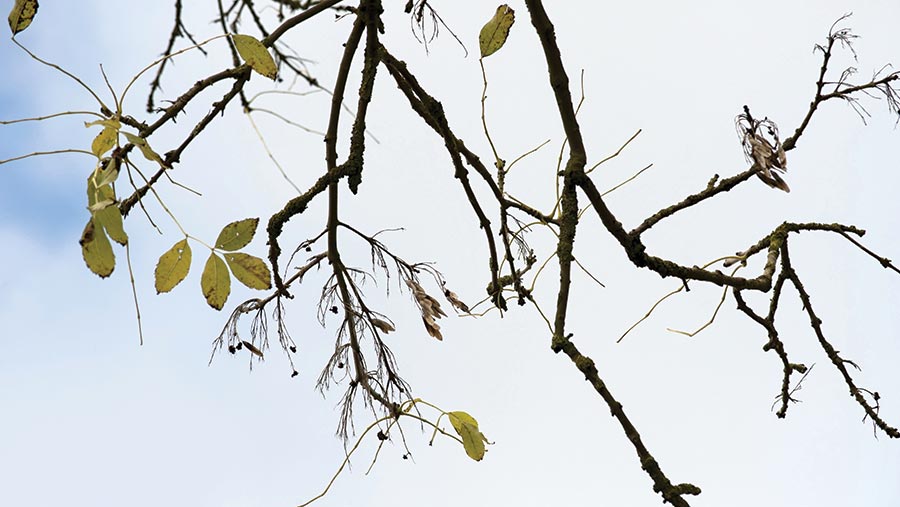Farmers plant trees in fight against ash dieback
 ©Eye Ubiquitous/Rex Shutterstock
©Eye Ubiquitous/Rex Shutterstock Farmers and landowners are planting thousands of native trees in the hope of reducing the long-term impact of ash dieback this winter.
More than 5,000 trees are being planted across East Anglia, Kent, East Sussex and Northumberland by 59 farmers and landowners working with the Woodland Trust.
See also: Gene breakthrough in ash dieback battle
Special “Tree Disease Recovery Packs” include 45 trees from a mix of five native species – beech, oak, wild cherry, hornbeam and birch.
They are being planted in landscapes where ash trees are already affected and likely to be lost in years to come, such as in hedgerows, verges, along field edges, corners and watersides.
“We have one boundary hedge which, in particular, has several mature ash trees in it,” said Norfolk landowner Marie Walker, from Mattishall.
“The English countryside will change forever if people do not plant a continuous supply of large native tree species, and ash dieback brings this truth more immediately to our door.”
Ms Walker said she was planting a new hedge 3m into the field in order to create a wildlife corridor, which in time would ensure the continuation of a mature tree line should ash trees die.
“There are plenty of hedges locally but there is a notable absence of woods, in fact Norfolk as a whole is very sparsely wooded,” she said.
The Woodland Trust is supplying the trees as part of a £4.5m investment in native tree stock.
Trust conservation director Austin Brady said the response from landowners had been encouraging and showed the passion to look after the countryside in the face of ash dieback.
“Although we won’t lose all our ash trees immediately, we do expect many thousands to die across the countryside,” said Mr Brady.
“We need to continue planting now, not only to protect the beauty of our landscapes but to provide the crucial habitat for wildlife that will be lost.”
Trees also delivered wider benefits, said Mr Brady. They provided shade and shelter, helping to reduce runoff and soil erosion, and supporting pollinators.
Mr Brady said all the trees supplied by the trust had been grown in the UK from fully traceable seed stock, which had been sourced throughout the UK and Ireland.
The next delivery of recovery packs is due in spring 2016.
The trust also offers support for landowners who wish to plant trees on a larger scale through its MOREwoods scheme.
